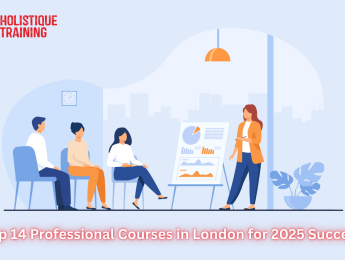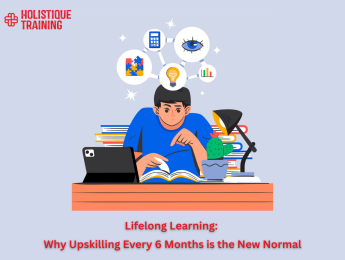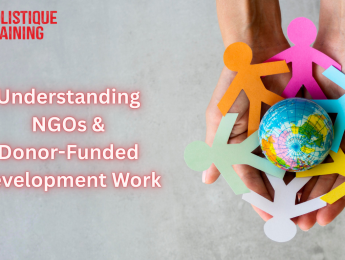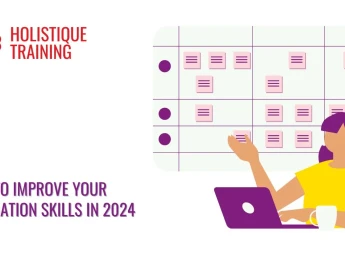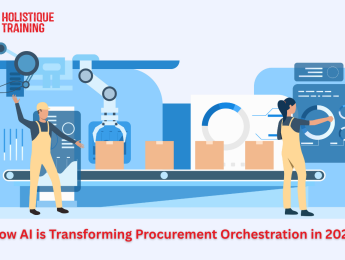Introduction
London stands out as one of the world’s most sought-after destinations for education and professional development. With its blend of academic tradition, global reputation, and cultural diversity, the UK capital offers learners a uniquely enriching experience. Over 400,000 students from around the globe choose London for their studies every year, drawn by its renowned institutions and vibrant job market.
In today’s fast-changing job landscape, more professionals are turning to short, intensive courses to sharpen their skills, pivot into new careers, or gain certifications that boost employability. Whether you’re looking to deepen your expertise or switch industries altogether, professional courses in London provide a wide array of opportunities.
In this comprehensive guide, we will explore the key reasons London is a prime location for professional learning, outline the criteria used to select top courses, and offer expert tips on how to choose the right programme for your goals. We will also highlight two standout courses from Holistique Training.
Why Choose London for Your Professional Development?
1. World-Class Education Institutions
London is home to some of the top universities and specialised training centres in the world. According to Times Higher Education, Institutions like University College London (UCL), Imperial College London, and the London School of Economics (LSE) consistently rank among the best globally for academic excellence and research output. These universities offer not only theoretical foundations but also practical training that is directly applicable to workplace challenges.
2. A Global, Multicultural Environment
London is a truly international city, hosting a population where over 300 languages are spoken. This makes it an ideal place to learn in a multicultural setting that encourages collaboration, cross-cultural communication, and global thinking. For professionals, this environment mirrors the increasingly diverse workplaces they operate in, making the learning experience especially relevant.
3. Strong Industry Connections and Career Opportunities
As a global hub for finance, technology, healthcare, fashion, and creative industries, London offers unmatched networking and employment prospects. Many professional courses are designed with direct input from industry leaders, ensuring that the curriculum reflects current market needs. Graduates often benefit from internship placements, career fairs, and recruitment partnerships tied directly to their training.
4. Flexible Learning Formats
From evening classes and weekend workshops to fully online programmes, London-based institutions cater to the diverse needs of working professionals. Whether you’re balancing a full-time job, family commitments, or transitioning between roles, there are flexible study formats to accommodate your schedule and learning preferences.
How We Selected These Courses
In curating this guide, we applied a meticulous selection process to ensure that every course listed offers both intellectual depth and real-world value. The goal was not merely to highlight popular programmes, but to feature those that genuinely empower learners to advance their careers in meaningful, measurable ways. The following core criteria shaped our evaluation:
1. Student Reviews and Satisfaction
We prioritised courses that consistently receive high ratings and positive testimonials from past participants. Learner feedback is a strong indicator of course quality, revealing insights into the effectiveness of the instructors, the relevance of the material, and the overall learning experience. We looked for programmes with a proven track record of helping students achieve their goals—whether securing promotions, changing industries, or gaining new competencies.
2. Institutional and Professional Accreditation
Accreditation matters. That’s why we focused on courses that are certified by reputable academic institutions or officially recognised professional bodies. Accreditation serves as a benchmark of quality, ensuring the programme adheres to industry standards and offers content that is credible, up-to-date, and transferable across different job markets.
3. Alignment with Market Needs
In a fast-moving economy, relevance is key. Each course included in our list reflects current trends and emerging demands in its respective field. From digital transformation and data science to leadership and HR management, we selected programmes whose curricula are shaped by employer feedback, real-time labour market data, and sector-specific innovations.
4. Tangible Career Outcomes
We assessed whether the courses lead to visible career progression—such as job promotions, lateral moves into new sectors, entrepreneurial ventures, or improved employability in competitive fields. Courses that demonstrated a clear link between training and professional impact were prioritised.
Top 14 Professional Courses in London, UK
1. Digital Marketing and Social Media – London School of Business and Finance (LSBF)
This 12-week course provides a solid foundation in digital marketing, combining theory with hands-on applications. Participants explore essential components of online marketing including Search Engine Optimisation (SEO), Pay-Per-Click (PPC) advertising, social media strategy, content creation, and web analytics tools such as Google Analytics. The course is especially suitable for those new to marketing or professionals looking to expand their digital skill set in an increasingly online business environment. It is delivered either in the evenings or full-time, offering flexibility for working professionals. By the end of the course, learners are expected to understand how to create, manage, and analyse the performance of online campaigns, ultimately enhancing business visibility and engagement.
2. Project Management: An Introduction – City, University of London
Ideal for early to mid-career professionals, this 10-week part-time course introduces the principles and practices of project management. Participants are taught how to scope, plan, execute, and close projects efficiently using both traditional and agile methodologies. The programme covers project life cycles, stakeholder communication, risk management, and team coordination. Students work through real-world case studies and interactive simulations that help translate theory into practical tools applicable in a wide range of industries. While it doesn't lead directly to PMP certification, it provides a solid base to continue towards more advanced certifications. The course is suited for anyone managing projects informally or seeking to transition into project-oriented roles.
3. Data Exploration and Visualisation – Imperial College London
This short course at Imperial College is aimed at professionals in academia, research, or business roles where data-driven insights are essential. Delivered over several days, it introduces the fundamentals of data analysis and visualisation. Participants learn how to clean and prepare data sets, perform exploratory data analysis, and communicate results using visually engaging tools. The course makes use of Orange, an open-source data visualisation and analysis tool, making it particularly accessible for those without a programming background. It is well-suited for beginners and intermediates in the data space who wish to sharpen their analytical thinking and develop presentation-ready dashboards or visuals for reports and decision-making.
4. Leadership Programmes – London Business School
London Business School offers a portfolio of executive education leadership courses for professionals ranging from first-time managers to senior executives. Each programme is designed to build leadership capabilities in areas such as strategic decision-making, emotional intelligence, performance management, and organisational transformation. Programmes like “Essentials of Leadership” and “Leading Teams for Emerging Leaders” allow participants to engage with global peers, work through simulations, and receive coaching from industry practitioners. Depending on the chosen path, programmes run between three days and several weeks. The curriculum is updated frequently to reflect contemporary leadership challenges and global trends.
5. Machine Learning MSc – University College London (UCL)
This one-year full-time master’s degree at UCL is among the most prestigious machine learning programmes in the UK. It is designed for students with a strong mathematical and computational background. The course covers a wide range of machine learning topics, including supervised learning, unsupervised learning, deep learning, probabilistic models, and applications in natural language processing and computer vision. In addition to lectures, students complete a research project or dissertation that often contributes to real-world problems in health, finance, or artificial intelligence. Graduates of the programme are well-prepared for careers in academia, tech firms, data science, and AI development roles.
6. Chartered Financial Analyst (CFA) Program – Kaplan UK
Kaplan’s CFA preparation courses support candidates sitting Levels I, II, and III of the globally recognised Chartered Financial Analyst examinations. The programme offers flexible study packages that include live online classes, on-demand lectures, textbooks, question banks, and mock exams. Expert tutors guide students through complex topics such as ethical and professional standards, quantitative methods, equity and fixed income analysis, and portfolio management. With high pass rates and practical exam strategies, Kaplan is a trusted name among professionals in investment banking, asset management, and financial planning. Courses can be tailored to suit working professionals looking to balance study with a full-time role.
7. CIPD Level 5 Associate Diploma in People Management – BPP University
This CIPD-accredited qualification is perfect for HR professionals with some experience who want to move into more strategic roles. The 12-week course covers core areas such as employee engagement, organisational behaviour, workforce planning, and employment law. Delivered through BPP’s flexible online platform, the programme includes assignments, case studies, and tutor-led workshops that help bridge the gap between HR theory and practical challenges. On completion, students can upgrade their CIPD membership and position themselves for HR business partner roles or managerial positions in talent and development. The course also develops essential soft skills in communication, negotiation, and decision-making.
8. UX Design Bootcamp – General Assembly London
This immersive 10-week full-time bootcamp is designed to train students in the principles and practices of user experience design. Participants learn how to conduct user research, create wireframes and prototypes, and carry out usability testing. The course includes daily assignments, industry-based projects, and portfolio development, making it ideal for those transitioning into tech or design from unrelated fields. General Assembly’s strong employer network and career support services enhance job placement opportunities, with many graduates going on to work in startups, digital agencies, or corporate UX teams. The course is accessible to beginners, though basic digital literacy is recommended.
9. Cybersecurity Fundamentals – King's College London
King's College offers this foundational course as part of its MSc in Cyber Security, though individual modules or continuing education opportunities may also be available. The course introduces key areas such as threat modelling, encryption, malware analysis, and network defence. Designed for IT professionals, graduates, or newcomers to the field, the programme helps learners understand the architecture of secure systems and the evolving nature of cyber threats. Given the global demand for cybersecurity expertise, the course is particularly valuable for those pursuing roles in IT governance, information security, and digital forensics.
10. Creative Writing for Professionals – University of the Arts London
This eight-week short course helps professionals develop storytelling techniques that can be applied in marketing, publishing, content creation, and journalism. Students work on plot development, narrative voice, character building, and editing skills. The course fosters creativity while grounding students in the fundamentals of strong, impactful writing. With expert guidance from published writers and regular peer feedback sessions, it suits both aspiring authors and professionals who want to refine their writing for business or communication purposes.
11. Business English for Professionals – British Council London
This flexible course helps non-native English speakers improve their professional communication skills. With modules focused on meetings, emails, negotiations, and presentations, the course prepares learners for English-speaking workplaces. It combines live instruction with interactive digital learning and is tailored based on students’ proficiency levels. Whether preparing for job interviews, networking events, or client meetings, learners develop both fluency and cultural awareness. The course is available at multiple levels and can be taken in person or online, depending on availability and location.
12. Hospitality Management – Glion London
This intensive hospitality programme at Glion Institute focuses on operations, guest experience, marketing, and international business strategies within the service industry. Students develop managerial and leadership competencies, preparing them for roles in hotel management, event planning, and tourism business development. The course emphasises experiential learning through case studies, internships, and simulations. With London as a hub for global tourism and hospitality, students gain both theoretical insights and practical exposure to high-end service environments.
13. A Masterclass in Strategic HR Management – Holistique Training
This five-day masterclass is tailored for senior HR professionals and business leaders aiming to sharpen their strategic management capabilities. The course delves into advanced HR strategy, organisational design, and the alignment of talent with long-term business goals. Participants will explore case studies, predictive workforce planning models, and leadership development frameworks. With a strong focus on performance metrics, change management, and stakeholder engagement, this programme is ideal for HR leaders who want to elevate their strategic influence and shape organisational culture.
14. Product Management & Marketing for B2B – Holistique Training
Designed for professionals working in B2B environments, this five-day course provides an in-depth understanding of product lifecycle management, market analysis, and strategic positioning. Participants will learn how to define value propositions, develop go-to-market strategies, and manage cross-functional teams. With practical frameworks and hands-on activities, this course equips marketing and product leaders with the tools needed to innovate and grow in competitive industries. It is especially suitable for those in SaaS, technology, manufacturing, and service-based sectors.
Tips for Choosing the Right Course
With so many options available, selecting the ideal professional course requires thoughtful planning. Here are some key considerations to help you make an informed decision:
1. Define Your Career Objectives
Are you aiming to get promoted, change careers, or gain a new certification? Clarifying your end goal will help you narrow down courses that align with your ambitions.
2. Verify Accreditation and Recognition
Choose programmes that are accredited by respected institutions or professional bodies. This not only ensures quality but also boosts your CV's credibility.
3. Read Alumni Testimonials
Research what past participants say about the course. Look for information on content quality, instructor expertise, and how the training impacted their careers.
4. Compare Duration, Cost, and Learning Format
Make sure the programme fits your lifestyle. Some may prefer intensive short-term formats, while others benefit from extended part-time study. Evaluate the return on investment based on tuition fees and potential career gains.
Summary Table:
Factor | What to Consider |
Career Objectives | Promotion, career shift, upskilling, certification |
Accreditation | Recognised by universities or professional bodies |
Student Feedback | Ratings, success stories, satisfaction scores |
Practical Considerations | Duration, location, cost, and delivery format |
Conclusion
Choosing to pursue a professional course in London is far more than an academic commitment—it is a calculated investment in your future. The city’s unparalleled blend of academic excellence, global industry connections, and cultural vibrancy creates a fertile ground for personal and professional growth. Whether you're a seasoned professional aiming to refine your leadership skills, an early-career graduate looking to gain a competitive edge, or someone seeking a complete career transformation, London offers the right environment to help you thrive.
What truly sets London apart is its ability to bridge theory and practice. Courses here are not limited to textbooks and lectures—they often incorporate real-world case studies, live projects, and networking with industry experts. This integrated approach empowers learners to apply what they’ve learned immediately and with confidence.
Moreover, the international nature of London’s learning environment fosters a global mindset. You’re not just gaining technical knowledge—you’re developing cultural intelligence, adaptability, and a wider worldview, all of which are critical in today’s interconnected job market.
So, whether your goal is to climb the corporate ladder, launch your own venture, or simply stay relevant in a fast-evolving industry, London has something to offer. Choose the course that best aligns with your aspirations, and take that bold step towards reshaping your career in one of the most dynamic and inspiring cities in the world.


